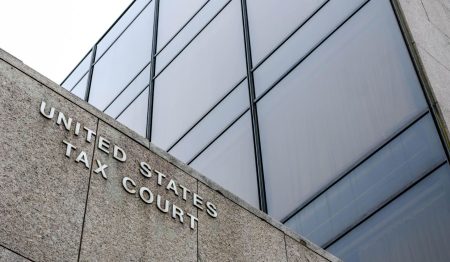On Friday, September 22, 2023, a federal jury convicted Jack Fisher and James Sinnot of conspiracy to defraud the United States, conspiracy to commit wire fraud, aiding and assisting the filing of false tax returns, and subscribing to false tax returns. His original indictment brought increased scrutiny to the industry as a whole. His conviction can now have even more of an impact on other conservation easements and how they are handled going forward.
What Is A Conservation Easement?
A conservation easement is a legal agreement between a landowner and a land trust or government agency that limits the development or use of a property to protect its natural, scenic, or cultural resources. Essentially, it is a voluntary way for landowners to ensure that their land remains preserved for future generations.
By entering into a conservation easement, the landowner agrees to permanently restrict certain activities on their property, such as building structures, subdividing the land, or engaging in certain types of agriculture or forestry practices. In return, they may be eligible for tax benefits and financial incentives. These agreements are tailored to each specific property, taking into consideration its unique conservation values and the landowner’s desires.
Conservation easements have been an effective tool in land conservation for many years, protecting millions of acres of land across the country. They play a crucial role in preserving biodiversity, protecting watersheds, and maintaining the integrity of natural and cultural landscapes.
Understanding what a conservation easement is and how it works is crucial to grasping the potential impact of Jack Fisher’s conviction and the subsequent changes that may occur within the industry. In the following sections, we will explore the implications of Fisher’s case and delve into the need for increased scrutiny and regulation to ensure the integrity of conservation easements going forward.
The Conviction’s Impact On The Industry
Fisher was a prominent figure in the field, known for his expertise and success in facilitating conservation easements. The allegations against him have cast doubt on the integrity of not only his own dealings, but also on the industry as a whole.
The impact of Fisher’s conviction extends far beyond his individual case. It raises questions about the effectiveness of the current regulations and oversight within the industry. If someone as well-respected as Fisher can be involved in fraudulent activities, what does that mean for other conservation easement cases? Will potential donors now hesitate to enter into these agreements, fearing that their intentions may be exploited?
Furthermore, Fisher’s case could have significant legal and financial implications for those involved in other conservation easements. If the allegations are proven true, the repercussions may extend to landowners, appraisers, and even the government agencies or land trusts that were involved in these transactions.
In light of Fisher’s conviction, it is clear that increased scrutiny and regulation are necessary to ensure the integrity of conservation easements. The industry must work together to implement stronger safeguards, oversight, and ethical standards to restore confidence in these important land preservation tools.
Fisher’s Scheme And Its Effects On Other Conservation Easement Cases
Jack Fisher’s scheme in his conservation easement dealings has sent shockwaves through the industry and raised concerns about the integrity of other conservation easement cases. If Fisher, a well-respected figure in the field, can be involved in fraudulent activities, what does that mean for other transactions? Will potential donors now question the legitimacy of conservation easements and hesitate to participate?
The implications of Fisher’s scheme extend beyond his individual case. It raises questions about the effectiveness of current regulations and oversight within the industry. The allegations against Fisher may have significant legal and financial consequences for landowners, appraisers, and government agencies or land trusts involved in other conservation easements. The industry as a whole must address these concerns and work together to implement stronger safeguards and ethical standards to restore confidence in conservation easements.
The impact of Fisher’s case should not be underestimated. It serves as a wake-up call for the industry, highlighting the need for increased scrutiny and regulation. Moving forward, it is crucial to ensure that conservation easements are conducted with the utmost integrity, so that these valuable land preservation tools can continue to protect our natural resources for future generations.
Increased Scrutiny And Regulation In The Industry
As a result of Jack Fisher’s conviction and the fraudulent activities he engaged in within the conservation easement industry, there is a pressing need for increased scrutiny and regulation. The case has exposed vulnerabilities within the industry and raised concerns about the integrity of conservation easements as a whole. In order to restore confidence and ensure the effectiveness of these important land preservation tools, it is essential that stronger safeguards and ethical standards are implemented.
Moving forward, industry organizations, government agencies, and land trusts must work together to address these concerns. This may involve the development of stricter guidelines and regulations for the appraisal process, enhanced oversight and monitoring of conservation easement transactions, and increased transparency in reporting and documentation. By implementing these measures, the industry can create a more robust system that safeguards against fraudulent activities and ensures that conservation easements serve their intended purpose of protecting our natural resources for future generations.
Furthermore, the increased scrutiny and regulation will help to instill trust and confidence among potential donors and landowners, who may be deterred by Fisher’s conviction. By demonstrating that the industry is committed to upholding the highest standards of integrity, the conservation easement community can rebuild trust and continue to preserve and protect our invaluable natural landscapes.
Potential Consequences For Those Involved In Fraudulent Conservation Easements
The potential consequences for those involved in fraudulent conservation easements are significant and far-reaching. If someone is found guilty of engaging in fraudulent activities, they could face both legal and financial ramifications. For landowners who participated in these fraudulent transactions, there is a risk of losing the tax benefits and financial incentives they received through the conservation easement. Additionally, they may be required to repay any tax credits or deductions they claimed as a result of the easement. This can result in a significant financial burden.
For appraisers who were involved in these fraudulent transactions, their professional reputation may be tarnished, and they could face legal action or disciplinary measures. Government agencies or land trusts that were involved in the easements may also face legal and financial consequences, as their oversight and due diligence may be called into question.
The potential consequences for those involved in fraudulent conservation easements highlight the importance of ethical and legitimate practices in the industry. It is crucial for all parties involved to uphold the highest standards of integrity to protect the integrity and effectiveness of conservation easements as a whole.
The Importance Of Ethical And Legitimate Conservation Easement Practices
Maintaining ethical and legitimate practices within the conservation easement industry is of utmost importance. The recent conviction of Jack Fisher and the allegations of fraudulent activities underscore the need for strong ethical standards. It is crucial that all parties involved, including landowners, appraisers, government agencies, and land trusts, uphold the highest levels of integrity.
Ethical practices ensure that conservation easements fulfill their intended purpose of preserving and protecting our natural resources for future generations. By adhering to ethical guidelines, the industry can rebuild trust and confidence among potential donors and landowners. This is essential to continue the vital work of land preservation.
Legitimate practices are necessary to prevent fraud and protect the interests of all stakeholders involved in conservation easements. Transparency, thorough documentation, and strict adherence to regulations are vital in ensuring the legitimacy of these transactions. By doing so, the industry can safeguard against potential legal and financial consequences.
In conclusion, upholding ethical and legitimate practices in conservation easements is essential to preserve the integrity and effectiveness of these land preservation tools. By doing so, we can ensure the long-term protection of our invaluable natural landscapes and the continuation of our efforts to preserve them for future generations.
Read the full article here









